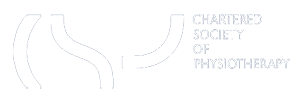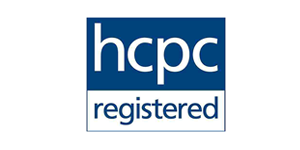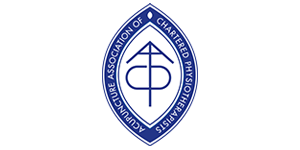What we treat
At W6 Physiotherapy, we have extensive knowledge and understanding of a wide variety of conditions, including:
- Age-related injuries: often gained through overuse
- Work-related injuries: often upper quadrant (upper limb, neck, upper back)
- Sports-related injuries: often lower quadrant (lower limb, lower back)
- Overuse injuries: from a variety of causes
- Post-surgical rehabilitation
The commonly occurring conditions we regularly treat are listed on this page. The conditions and causes of pain stated here are not exhaustive.
If you are experiencing pain or discomfort in any part of your body just book an appointment, pop in to our clinic, or call on 020 8748 9006 – and see how we can help.
Did you know, back pain is so common that it affects eight out of ten people at some point in their life?
With thorough assessment, investigation and considered intervention, our team at the W6 Physiotherapy can ensure the maximization of comfort and a speedy recovery.
There are many causes of back pain. The main causes are listed below:
- Slipped disc
- Facet joint syndrome
- Non-specific lower back pain
- Muscle imbalance (weak or short overactive muscles)
- Nerve impingement
- SIJ (Sacroiliac Joint) disorder
- Lumbar strain
- Postural dysfunction
- Rheumatoid arthritis
- Spondylolisthesis
Almost daily there are great stresses imposed on your neck – the most mobile section of your spine. Impairment of your neck’s normal function can be extremely debilitating, so the experience of our team will be of great importance in guiding you through managing any potential causes.
Some of the main causes of neck pain are listed below:
- Wry neck
- Whiplash
- Stenosis
- Postural dysfunction
- Nerve impingement
- Inappropriate workplace set-up
Acute injuries occur as a result of a sudden impact or awkward movement. Often, these will repair independently without the need for intervention. However, specialist advice and treatment can speed up recovery, reduce painful debilitating symptoms, and prevent the reoccurrence of future injuries.
Below are some of the common conditions that can cause problems with your shoulder:
- Frozen shoulder
- Shoulder impingement
- Rotator cuff dysfunction
- Subluxation /dislocation
- Tendonitis
- Overuse /misuse
- Weakness in any of the muscles attached to the shoulder blade
- Repetitive overhead activity
Elbow dysfunction can be developed when an inappropriate technique is used in sport, such as tennis or golf, but can also be caused by overuse in the office (eg: poor set up of keyboard, mouse and or chair).
Some of the main causes of elbow dysfunction are:
- Tennis elbow (lateral epicondylitis)
- Golfer’s elbow (medial epicondylitis)
- Repetitive strain injury (RSI)
These conditions are regularly seen at our clinic, and effective relief can be attained through physiotherapy.
Wrist problems can be caused by:
- Carpal tunnel syndrome (CTS)
- Ligament strains
- Fractures
Hip problems can develop gradually over time, or can occur suddenly. Knowing the nature of the injury (degenerative, traumatic, mechanical) can often lead to an accurate diagnosis.
Below are some of the common problems affecting the hip joint:
- Bursitis
- Referred nerve pain
- Osteoarthritis
- Tendonitis
- Strains (labral tears)
Knees are a commonly injured area of the body due to the complexity of their design, and the ferocity of forces passing through them.
Physiotherapy will help you to correctly manage any acute injuries such as meniscal tears, iliotibial band (ITB), friction syndrome and ligament injuries, as well as the more degenerative injuries such as arthritis and anterior knee pain.
These conditions can be treated at our clinic, and we will help you recover so you are able to deal with the normal activity levels of daily life.
Poor biomechanics (mechanical body movement) of the ankles or feet can cause pain or injury in another area of the body, such as knees, hip or lower back.
Good biomechanics of the lower extremities (the part of the body from your hip to your toes) is crucial for a healthy skeletal system. Ankles and feet are very often overlooked during assessment, causing a delay in the recovery process. This can be very frustrating for the patient.
We make sure that issues such as overpronating heels (flat feet) and stiff ankles are addressed during the course of the treatment. In many cases, gait analysis or a podiatrist assessment, should be an integral part of the assessment and recovery process for patients suffering from lower limb injuries.
Listed here are some problems that can affect your feet or ankles:
- Achilles tendonitis
- Plantar fasciitis
- Sprained ankle
Joint stiffness can affect any joint within the body, creating considerable discomfort and limiting activity.
Appropriate joint mobilisations or manipulations are often used to deal with joint stiffness. Our patients often comment that their joints are more supple, and they feel more mobile after physiotherapy treatment with us.
Techniques used at W6 Physiotherapy are based on the Maitland Concept of Manipulative Physiotherapy.
Headaches are frequently of a musculoskeletal origin and therefore, detailed assessment of your neck, skull and jaw can resolve longstanding issues of concern.
Some common issues:
- Cervicogenic headaches > pain often originating from the neck
- Trigger points
- Tension-type headaches
Sore, tight muscles and joints can occur for a number of reasons:
- Postural dysfunction
- Overuse injury
- Muscle fatigue
- Delayed onset muscle soreness (DOMS)
- Biomechanical faults
- Muscle imbalance
Muscles and body tissues can become shortened and overactive, or lengthened and weak.
This relationship can spiral, leading to considerable discomfort. Treatment of tense, tight and sore muscles may require in-depth analysis to determine the underlying reason. Our expert staff can identify the root causes of your symptoms and rehabilitate to ensure that once treated, an injury-free state is maintained.
Short term, your priority may simply be to ease symptoms and increase comfort. This can often be achieved through professional massage, myofascial release and other therapeutic modalities, which are all offered at the clinic.



